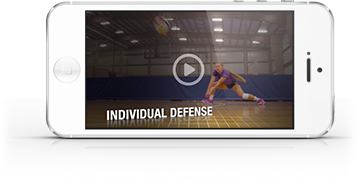Cell phones, text messages, instant messages, constant images zapping your athletes' brains from television to video games to online computer time. Is there a downside to this information overload? If so, what can be done about it? A new book called “Rapt” looks into the perils of the information age and comes up with some interesting conclusions. All this multi-tasking can have a negative impact in several areas.
One, athletes may have trouble studying or paying attention to either your or their teacher’s instructions for any length of time. On the field, they may not be able to stay mentally alert enough during games that they start taking plays off or let their mind drift during live action.
The best way to stay mentally sharp is to find the place that lies between the anxiety of being overwhelmed (and over-stressed) and the apathy of being underwhelmed (and bored) that people can experience a “flow state.” Such intense focus is central to finding the “peak” or “optimal” experience in and out of sports.
One method the author touts is meditation, which she believes allows individuals to shift focus away from the past or the future so that we can “pay rapt attention to the present and experience a state of pure attention that occurs before thinking.”
Another good way is to have your athletes that are faith-based is to study their holy text during a period of quiet time each day or evening. It can be as little as 5 minutes but can make a big difference in helping the athlete settle down and keep his or life in perspective.
She also gives simple advice such as making sure you take time away from those things that distract you (see the list above). She advises taking breaks from the electronic media so that “you control them, they don’t control you.”
A researcher at the University of Michigan did a study on students walking patterns on campus. The study found that students who took a walk through the Ann Arbor Arboretum for 30 minutes or more instead of walking through the bustle of downtown on their way to class showed a marked improvement in their ability to concentrate and pay attention for longer time periods.




